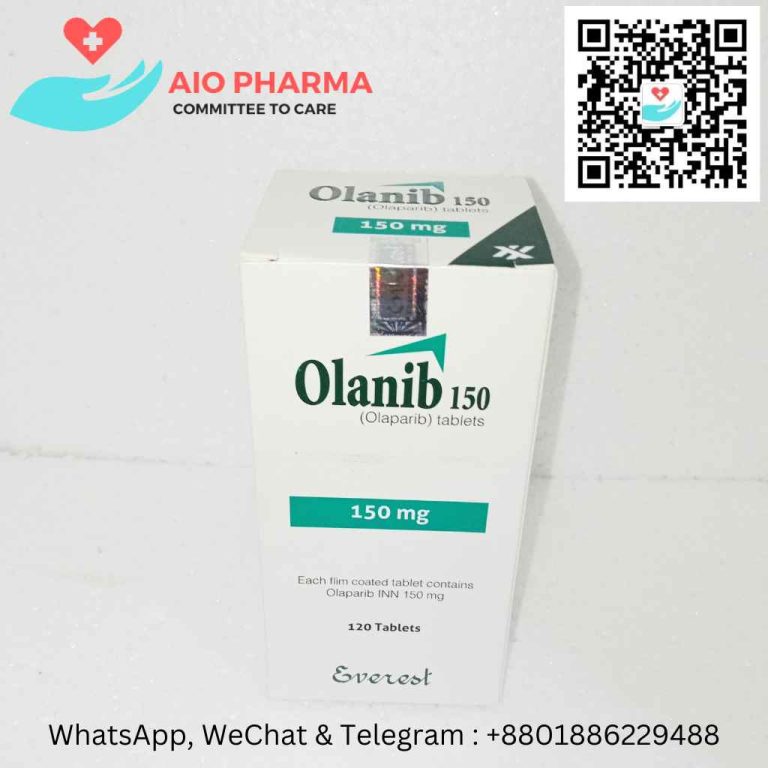WhatsApp, WeChat & Telegram : +8801886229488, Email : aiopharma@outlook.com
Russia’s “New Cancer Vaccine”: Breakthrough, Hype, or Something Else?
Headlines about a new “cancer vaccine” from Russia have been buzzing across news feeds and social media, sparking both hope and curiosity. It sounds like a miracle shot—a single solution to one of humanity’s most formidable foes.
But what is this vaccine, really? Is it the universal cure we’ve been waiting for, or is there more to the story? Let’s break down what we know, what we don’t, and why it’s still a development worth watching.
First, Let’s Clear Up the Biggest Misconception
This is not a vaccine in the way we typically think of them. You won’t get it at your annual check-up to prevent cancer from ever starting.
Instead, it’s a personalized therapeutic vaccine, or more accurately, an mRNA immunotherapy. It’s designed for people who are already diagnosed with cancer. Think of it less like a measles vaccine and more like a highly sophisticated, custom-made training program for a patient’s immune system to hunt down and destroy cancer cells.
How Does the Russian Cancer Vaccine Work?
The technology might sound familiar because it’s the same platform used in the Pfizer and Moderna COVID-19 vaccines: mRNA.
Here’s the simple version of how it works:
- Biopsy: Doctors take a sample of the patient’s tumor.
- Sequencing: Scientists analyze the tumor’s genetic code to find its unique, neoantigens (mutations that aren’t found in healthy cells).
- Design: They create a custom mRNA molecule that carries the blueprint for these cancer-specific markers.
- Injection: The personalized mRNA vaccine is injected into the patient.
- Training: The body’s cells use this mRNA blueprint to produce the cancer markers, which the immune system then learns to recognize as a threat.
- Attack: The newly trained immune system targets and attacks the cancer cells displaying those same markers throughout the body.
Who is Behind It?
The vaccine is being developed by the Gamaleya Institute, the same research center in Moscow that created the Sputnik V COVID-19 vaccine. Russian officials have announced that the vaccine is in early-stage clinical trials and have shared promising, albeit preliminary, results.
The Crucial Context: What’s Missing?
This is where a healthy dose of skepticism is essential.
- No Peer-Reviewed Data: As of now, the developers have not published their findings in a reputable scientific journal. This means the international medical community has not been able to scrutinize the data, validate the results, or assess the trial’s methodology. In science, publication and peer review are the gold standard for credibility.
- It’s Early Days: The trials are in Phase I or possibly early Phase II, which primarily focus on safety and dosing. Larger trials are needed to truly prove how effective it is compared to existing treatments.
- It’s Part of a Global Race: It is vital to understand that Russia is not alone in this pursuit. Companies like BioNTech (which partnered with Pfizer on its COVID vaccine) and Moderna are years into advanced clinical trials for their own mRNA cancer vaccines targeting melanoma, pancreatic cancer, and other types. These efforts have already published extensive data showing significant promise.
The Bottom Line: Cautious Optimism
So, is the Russian cancer vaccine a breakthrough?
- Yes, in the sense that it further validates the immense potential of mRNA technology to revolutionize cancer treatment. The fact that another major player is reporting success adds to the growing consensus that this is a viable path forward.
- No, in the sense that it is not a unique “Russian miracle cure” that is ahead of the rest of the world. The development is part of a broader, exciting global frontier in oncology.
The most important takeaway: For anyone facing a cancer diagnosis, it’s crucial to rely on information from your oncologist. While these developments are incredibly promising, they are still largely experimental.
The future of cancer treatment is increasingly looking like it will involve these kinds of personalized, immune-based therapies. The Russian vaccine news is another chapter in that story, but the book is being written by scientists all over the world.
What to do next? Stay informed, but always look for information from reputable medical sources and published research. The real headline here isn’t about a single country’s vaccine; it’s about a transformative shift in how we may fight cancer for decades to come.


